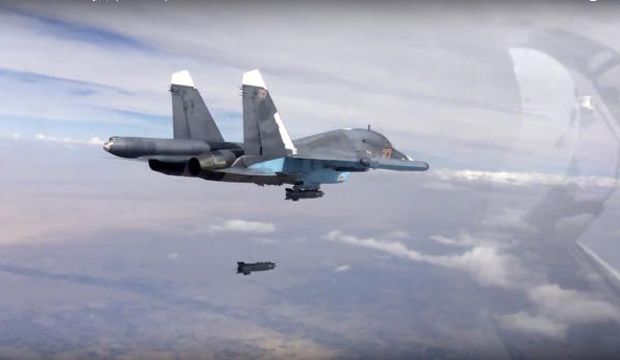Anyone observing current events in the Middle East must be wringing their hands in the face of such a perplexing and catastrophic situation. The gambles which some countries are making now risk inflaming the Syrian crisis into a third world war—or at the very least a proxy war involving major powers, especially if any of them makes a wrong move.
Such missteps could lead to a swift descent into the quicksand of the Syrian crisis which has in four years transformed itself from a mere popular uprising calling for democratic reforms and better social conditions to a bottomless pit involving an international conflict between the United States and Russia.
The situation has certainly become more dangerous following Russia’s military intervention, which ostensibly aims to fight the Islamic State of Iraq and Syria (ISIS), though Western media outlets have reported that the Russians are mainly targeting rebel groups opposed to the regime of Bashar Al-Assad.
While it would be folly to expect a direct confrontation in Syria between the US and Russia—this didn’t even happen in the Vietnam or Korea wars—the situation is certainly tense after reports of a Russian plane flying into Turkish airspace. Will Turkey now become an American proxy combatant against the Russians, as happened with the Taliban against the Soviets in Afghanistan during the 1980s?
In truth this scenario seems far-fetched. Turkey has given no indications it wishes to enter the conflict beyond forays into its own territory. In fact Ankara seems to have tired of the burden it is carrying due to its proximity to the conflict, especially with regard to the influx of Syrian refugees into its territories and terrorist attacks carried out on its soil. Moreover, Ankara is also preparing to enter into a strategic natural gas pipeline deal with Moscow.
There are many who blame American reluctance to arm and train the Syrian opposition, and the conflicting positions coming out of Washington regarding this point, for why the situation in Syria has become so complicated. Others blame Arab countries for not intervening during the early stages. But the latter criticism is illogical, as it would mean that Arab armies would pit themselves against each other—and this is not possible, because the political will for such a scenario is absent.
The strange thing is that many have genuine doubts regarding the American position. This is what has opened the door for Putin, as there is clearly some kind of military cooperation between Moscow and Washington to prevent any clashes between their aircraft from occurring over Syrian airspace. The Americans seem content for their planes to bomb ISIS targets in Iraq while the Baghdad government forms a strategic alliance with Moscow to combat the group.
What, then, from the strategic point of view, do the Russians wish to achieve in Syria? And is it true that their main objective is to protect Assad, especially considering—and Moscow knows this all too well—that he will be unable to remain in power if there is a political solution to the conflict? Is it that the Russians wish to have a hold over the Mediterranean? Perhaps, but what is certain is that if there is any regime change in Damascus, whoever is in charge will have to accept Russian influence.
This is the 64,000-dollar question which no one has the answer to right now: Who will be in power if there is indeed a transitional period of governance in Syria? For no one will be willing to share power with ISIS, or to hand over governance of a major Arab country such as Syria to any extremist group. Dividing Syria into autonomous regions where different countries hold sway—as is the situation right now—won’t work either, as this will become a persistent source of tension for everyone concerned.
It is in this way that Syrian crisis now become like quicksand—which changes position and direction constantly and swallows up anyone who comes into contact with it. What Syria truly needs is an international conference where the main players—regional and international—can all sit down together to decide on the terms of engagement in the conflict and on the country’s eventual political future. In this way we can solve the majority of the current problems and avoid the abyss of a conflict between major international powers.
